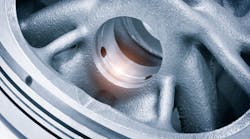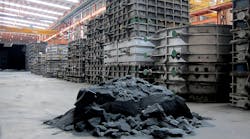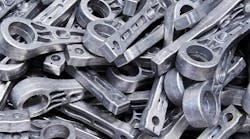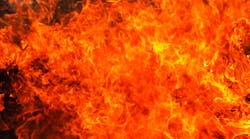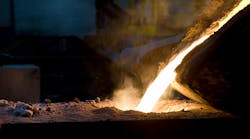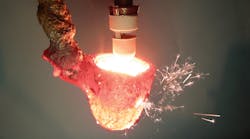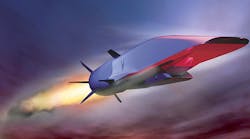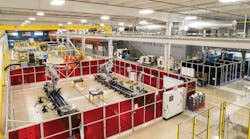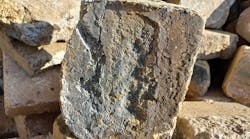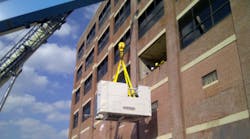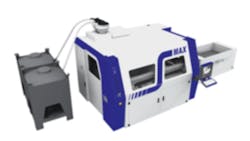The University of Northern Iowa’s Metal Casting Center installed an ExOne 3-D printer recently, and will use it as part of its training and research program as well as offer printing service for industrial customers. The $1.5-million machine as funded largely by the Iowa Economic Development Authority, with $1.2 million, and UNI and the Metal Casting Center covered the balance.
The UNI Metal Casting Center coordinates research efforts by the university with private-sector applications, and offers R&D service on large-scale projects as well as smaller or individual inquiries.
The machine converts CAD data into three-dimensional designs in various materials, including bonded sand for molds and cores. It should be fully operational later this month, according to the MCC. The ExOne machine is notable for offering a large build envelope – over 13 cubic feet — which increases the range of commercial possibilities for the technology. The MCC’s director Jerry Thiel said the center also plans to install a smaller, laboratory-scale 3D printer, to be used for researching new aggregates and binders for use in 3D printing.
“The printer will be used to strengthen Iowa's industrial base by bringing advanced manufacturing technology to TechWorks and the state through service to the castings industry under the name of Rapid Casting Technologies,” stated Jerry Thiel, the center’s director.
The Metal Casting Center is part of UNI’s Department of Technology, and located at the Cedar Valley TechWorks in Waterloo, a cluster of business development programs related to local industrial sectors, like biofluids research.
More Than Molds
In addition to producing sand molds and cores, the Metal Casting Center will research processes involving alternative materials, working with regional companies to identify different possibilities and approaches.
“It’s going to be a fantastic opportunity for the Metal Casting Center,” noted Jerry Thiel, the Director - Metal Casting Center/Center For Advanced Bio-based Binders, “and allow us to participate in various advanced manufacturing projects.”
Thiel said half of the new printer’s use is committed to industrial projects. “The other half will be committed to advancing the technology through research and development activities.
“We want to demonstrate the usefulness and versatility (of the technology) in 3D core and mold production,” Thiel explained. “We also want to push the boundaries of what is technically possible, currently.
“There are various applications for 3DP that haven’t been explored yet because the cost of the technology has prohibited it,” he continued. “By researching new materials and applications, we can bring the technology to both small and large manufacturers, improve their competitiveness and advance the industry.
Thiel compared 3D printing technology to CNC machining, “which 20 years ago was only for the larger companies. Now, even small foundries can see the benefit of adding value to casting production.
“Technology is moving forward at a fast rate and the Metal Casting Center wants to be part of it, if not the driving force that makes it happen,” according to Thiel. “The industry needs to be informed and educated about the technology and we’d like to be part of that.”
